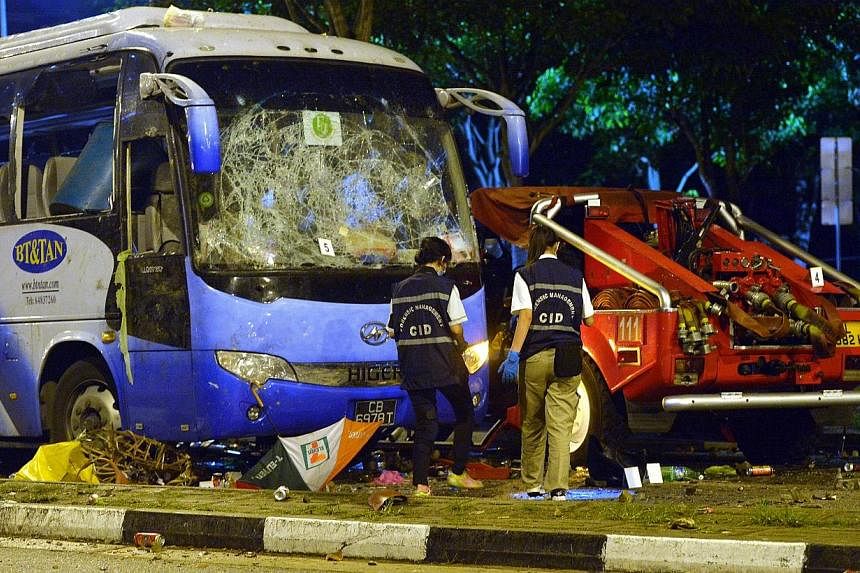SINGAPORE - The Committee of Inquiry (COI) into last December's riot in Little India found that several misunderstandings about the fatal bus accident that sparked the fracas, and an Indian street culture of "retributive justice", both contributed to the violence.
While evidence and eyewitness accounts indicated that the "triggering cause of the riot" was a road traffic accident that killed construction worker Sakthivel Kumaravelu, the COI in a report released Monday said that the mob's "misperception about what followed ignited further fury that led to an escalation in violence and scale of the riot".
These included wrongly holding the driver of the bus responsible for the death of the worker from India, when investigations later ascertained that the latter had in fact fallen under the bus by his own doing.
The crowd also misperceived the intentions of the first responders, added the report, and the workers were enraged that public officers were shielding rather than handcuffing the driver and the bus time-keeper.
Interviews with workers revealed that rumours about Mr Sakthivel being pinned under the bus alive - when he had in fact died upon impact - led the crowd into thinking no rescue efforts were being made.
In a manner similar to Indian street culture, the crowd of workers - mostly from South Asia - tried to extract "retributive justice" by targeting the driver, the bus, the time-keeper, and the first responders.
This, the committee heard, could have been further compounded by a "sub-culture...among some working class men in Tamil Nadu" to "feel heroism" in disobeying law enforcement.
The COI noted that such men exercising these cultural psychologies "constitute a very small minority (in) Singapore's foreign worker population".

